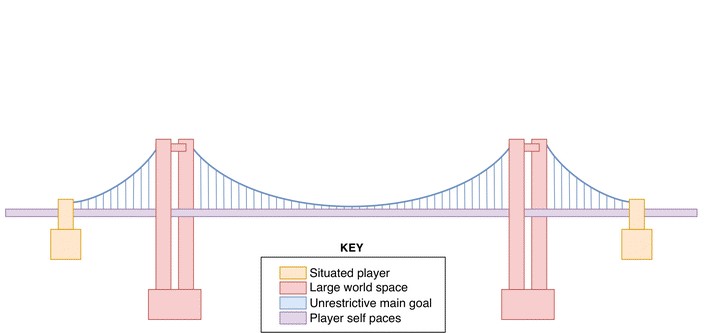
Abstract
Games provide a variety of experiences for players. Currently, research focuses either on games as undifferentiated wholes, or on a feature-level basis where findings are difficult to generalise. However, specific gaming experiences cannot be explained from these approaches. Open world games in particular are a popular game type known for giving players high levels of choice over what they do, thus enabling uniquely different experiences. Current approaches cannot capture what about this gaming experience players enjoy or why. To do so requires a ‘contextually-specific’ approach, demonstrated in this paper by interviewing eleven players of open world games about their experiences. A thematic analysis showed what they believed the open world to be, as well as how the experience is enabled. Five concepts interlock together to enable the final theme; (1) players are situated to scale within the world, (2) the world is large, connected and accessible, (3) the main goal does not restrict players from engaging with other activities, (4) content density is more important than world size, and (5) players self-pace gameplay through engaging/disengaging with tasks at will. This study highlights how the use of a contextually-specific approach provides insight into specific player experiences, and why players enjoy them.